Bees
-

The southeastern blueberry bee is an economically valuable pollinator in commercial blueberry production in Georgia. Researchers see a need for conservation of this species, and this resource provides detailed information on its identification, biology, nesting habitat, and floral hosts. It also incorporates research data from recent study in commercial blueberry system in south Georgia.
Bodie V. Pennisi, Sarah Miranda Rezende, Madison Love, and Jason Schmidt
|
-

Plants develop seeds through a process called pollination. Pollination is the transfer of pollen from the stamen (male flower part) to the pistil (female flower part).
Bob Westerfield
|
-
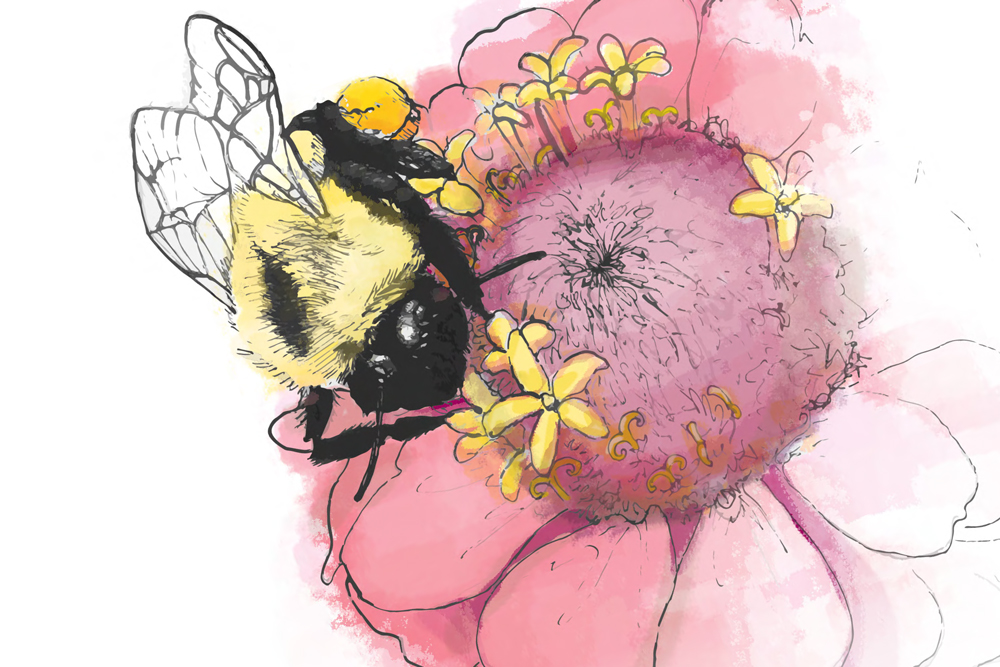
A pollinator-friendly and ecologically sustainable garden is both beautiful and able to attract and sustain beneficial insects, reducing the need for pesticides. This publication is based on new research in habitat management for purposes of planting insect-attracting plant species in order to intentionally draw insects to garden areas and urban landscapes. This is done by providing a refuge for the insects during winter and nectar and pollen resources. Plant selection directly affects beneficial insect populations, those insects that can provide ecological benefits such as biodiversity and natural pest control. This concept of “habitat management” can lead to potential increases in pollinating and other beneficial insect populations. An increase in these populations in landscapes will contribute to improved pollination of plants and biological pest control and reduce the need for pesticides.
Bethany A Harris, S. Kris Braman, Bodie V. Pennisi, and Maria Putzke
|
-

B 1290
Africanized Honey Bees
Honey bees are among the most well-known and economically important insects. They produce honey and beeswax, and pollinate many crops. In spite of the alarm surrounding Africanization, these bees have not caused widespread or permanent chaos. Dramatic stinging incidents do occur, but the quality of life for most people is unaffected. Typically, the commercial beekeeping industries of Africanized areas suffer temporary decline and then eventually recover.
Keith S Delaplane
|
-
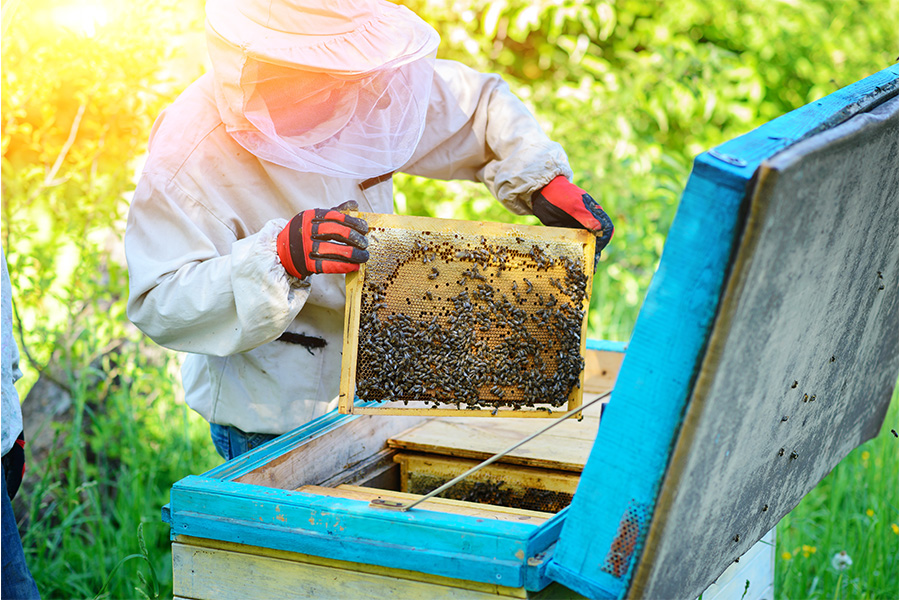
B 1045
Honey Bees and Beekeeping
Honey bees are commonly kept in artificial hives throughout the United States, and a large and sophisticated beekeeping industry provides valuable honey, beeswax and pollination services. A large section of the industry, well represented in Georgia, is devoted to mass-producing queens and bees for sale to other beekeepers.
Keith S Delaplane
|
-

Bees are among the most populous, diverse, and effective pollinators. Approximately 70% of bee species nest in the ground, spending their larval and pupal stages underground. This resource helps residents understand how to help these bees as continued urbanization threatens natural spaces and land degradation, pollution, and habitat destruction present serious challenges to sustaining bee populations.
Zia Valerie Williamson and Shimat V. Joseph
|
-
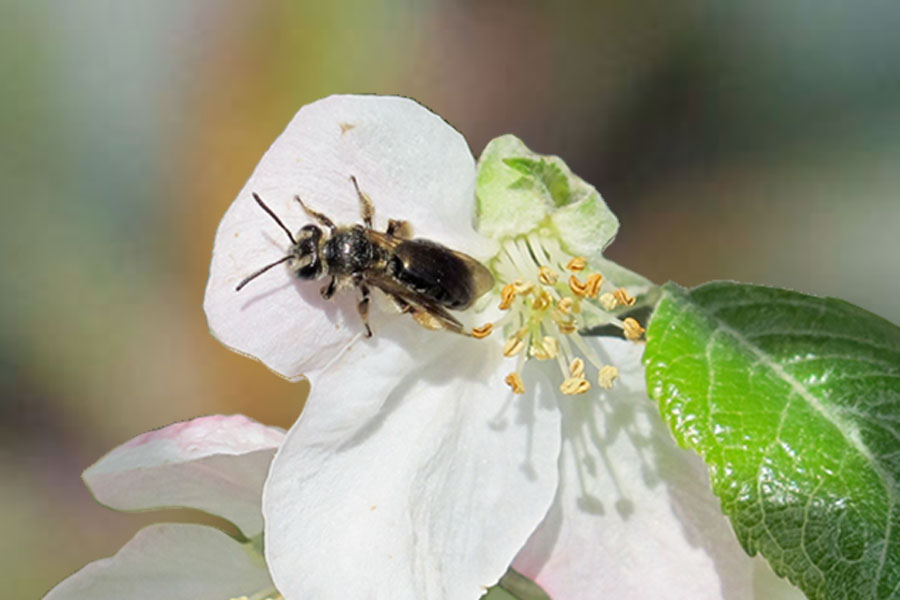
Wild bees are effective pollinators of crops and native flowers, shrubs, and trees. They are
naturally present and can supplement honey bees in apple pollination. Boosting their numbers
by habitat development and conservation can be of considerable commercial and ecological
value to producers and consumers. This guide is intended to highlight most common wild bees
in North Georgia apple orchards.Bodie V. Pennisi and Brett R Blaauw
|
-
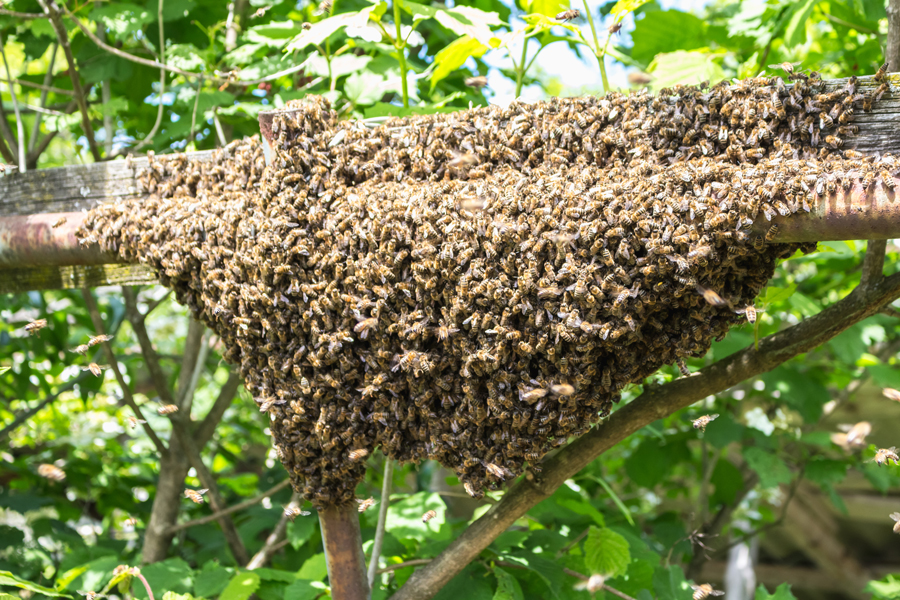
This circular is for property owners who have unwanted honey bee swarms on their lands or colonies nesting inside walls. It explains these natural processes and gives options for dealing with them.
Keith S Delaplane
|
-
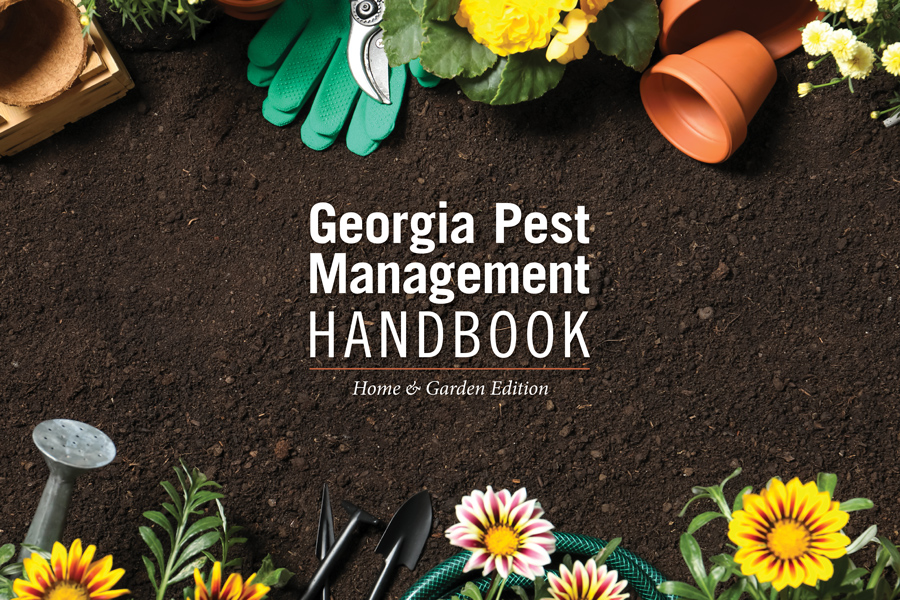
SB 48-03
Animals and Honey Bees
This section of the Home & Garden Edition covers external parasite control in companion animals, flea control products, and honey bee disease and pest control. Beginning in 2022, the Home & Garden Edition has been updated biennially. When purchasing a product based on a first-year recommendation of the Handbook, check the current product label before purchase to be sure it is still labeled for the use for which you are buying it. For pesticide products you have on hand from earlier purchases, you are allowed to use them until they are depleted without penalty under the law. Always follow label instructions before use. Contact the product’s manufacturer for the most up-to-date label.
Keith S Delaplane, Nancy C. Hinkle, and Allison Faye Johnson
|